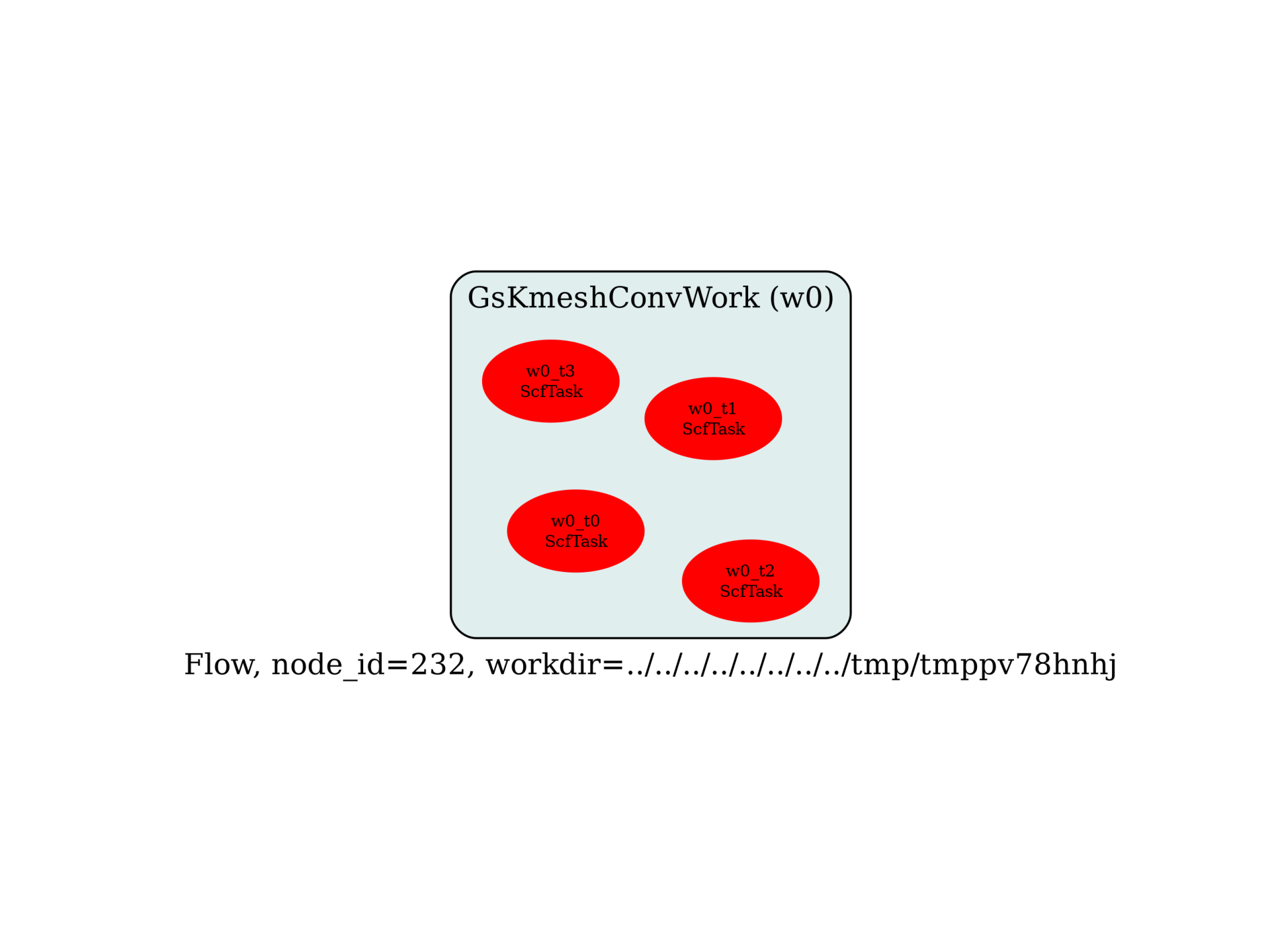Note
Go to the end to download the full example code.
Convergence study with different k-meshes
In this example,

import sys
import os
import abipy.abilab as abilab
import abipy.flowtk as flowtk
import abipy.data as abidata
def build_flow(options):
"""
Build and return a flow for GS properties with different k-meshes
"""
# Set working directory (default is the name of the script with '.py' removed and "run_" replaced by "flow_")
if not options.workdir:
options.workdir = os.path.basename(sys.argv[0]).replace(".py", "").replace("run_", "flow_")
structure = abilab.Structure.from_file(abidata.cif_file("gan2.cif"))
pseudos = abidata.pseudos("Ga.oncvpsp", "N.oncvpsp")
scf_input = abilab.AbinitInput(structure, pseudos)
scf_input.set_vars(
ecut=15, # Too low.
nstep=50, # Increase default
tolvrs=1e-8,
)
flow = flowtk.Flow(workdir=options.workdir)
from abipy.flowtk.gs_works import GsKmeshConvWork
nksmall_list = [2, 4, 6, 8]
flow.register_work(GsKmeshConvWork.from_scf_input(scf_input, nksmall_list))
return flow
# This block generates the thumbnails in the AbiPy gallery.
# You can safely REMOVE this part if you are using this script for production runs.
if os.getenv("READTHEDOCS", False):
__name__ = None
import tempfile
options = flowtk.build_flow_main_parser().parse_args(["-w", tempfile.mkdtemp()])
build_flow(options).graphviz_imshow()
@flowtk.flow_main
def main(options):
"""
This is our main function that will be invoked by the script.
flow_main is a decorator implementing the command line interface.
Command line args are stored in `options`.
"""
return build_flow(options)
if __name__ == "__main__":
sys.exit(main())
Total running time of the script: (0 minutes 0.306 seconds)